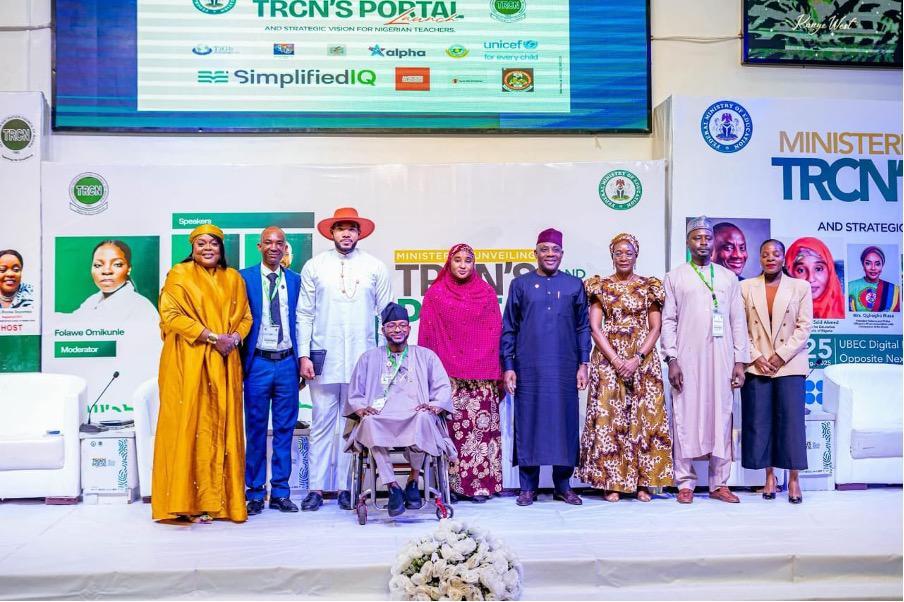Nigeria unveils Digital Teacher Licensing Portal, Calls Grow for Ministry of Children and Basic Education

Nigeria unveils Digital Teacher Licensing Portal, Calls Grow for Ministry of Children and Basic Education
Nigeria’s education sector recorded a landmark development on Monday with the official launch of the Teachers Registration Council of Nigeria (TRCN) Digital Teacher Licensing and Registration Portal in Abuja.
The event, held at the UBEC Digital Resource Centre, brought together senior government officials, teacher unions, civil society leaders, development partners, and education advocates, all rallying behind a common vision: strengthening accountability, ethics, and professionalism in teaching.
Describing the launch as “a bold and historic step toward restoring dignity to the teaching profession,” the Minister of Education, Dr. Morufu Olutunji Alausa, emphasized the government’s resolve to transform the sector through digital innovation.
“This launch demonstrates our government’s commitment to accountability, transparency, and digital transformation in education,” Dr. Alausa declared. “Every teacher must be licensed, profiled, and held to the highest standards, because the future of our children depends on it.”
A key highlight of the day was a panel discussion on Digital Transformation in Teaching, moderated by Folawe Omikunle, former CEO of Teach For Nigeria. It was during this session that Otto Orondaam, Founder of Slum2School Africa, made a passionate case for the establishment of a Ministry of Children and Basic Education.
“If we want to build a nation that thrives in the 21st century, we must start with children,” Orondaam stressed.
“The formative years of education are where destinies are shaped, but sadly, they remain the most neglected in Nigeria. A Ministry of Children and Basic Education would ensure the prioritization of Early Childhood Education, such that every Nigerian child, regardless of background, has access to the foundational opportunities that define their future.”
Orondaam warned that Nigeria’s 10 million out-of-school children represented not only a national crisis but also a wasted pool of human potential. He further criticized declining standards in teacher training admissions.
“This disparity means that some of our least qualified candidates end up in teaching—yet teachers are the ones shaping every other profession,” he said, urging higher entry requirements, better welfare, and continuous training. “Teaching must be elevated to the same level of prestige as medicine, law, and engineering.”
For her part, the TRCN Registrar, Dr. (Mrs.) Ronke Soyombo, underscored the importance of the new portal in professionalizing teaching.
“The days when anyone could wake up and claim to be a teacher are over,” she affirmed. “With this system, every teacher will be traceable, every qualification verifiable, and every breach of ethics accountable.”
Reinforcing the government’s stance, the Minister of State for Education, Prof. Suwaiba Said Ahmed, said welfare and recognition for teachers remained central to policy.
“We must invest in our teachers if we expect them to invest in our children,” she said. “Teachers must be seen not only as knowledge providers but as nation-builders.”
International partners, including UNICEF, the British Council, Save the Children, and UK International Development, hailed the initiative as vital for restoring credibility to the Nigerian education system.
The launch ended on a celebratory note, with Slum2School students performing a poem dedicated to teachers, followed by a vibrant cultural display celebrating Nigeria’s heritage.
While the TRCN’s digital reforms mark a significant step forward in teacher professionalism, Orondaam’s call for a dedicated Ministry of Children and Basic Education injected fresh urgency into the national education debate, placing early childhood learning at the center of Nigeria’s long-term development agenda






